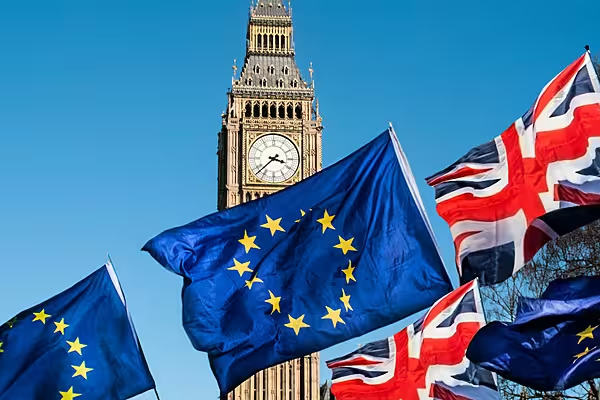The European Union flagged to Britain long before it left the bloc that any future free trade deal would have to come with a commitment from London to uphold fair competition, a senior EU adviser said on Wednesday.
Britain left the EU in January with an 11-month, business-as-usual transition period, and will need new trading terms from January 2021 to avoid potential disruption to trade.
Stefaan de Rynck, an adviser to EU's chief trade negotiator Michel Barnier, said the trade talks would be tougher than the negotiations that secured Britain's divorce settlement because of their broader scope and time limit. So-called 'level playing field' clauses on fair competition were also necessary.
'Level Playing Field'
"It can be no surprise... as early as March 2018, the 27 heads of state and governments on the EU side said we are ready to negotiate an ambitious trade relationship with the UK in so far there are robust guarantees on a level playing field," de Rynck said.
The political declaration signed by Britain and the bloc in October 2019 alongside their divorce deal stated that a free trade agreement would be "underpinned by provisions ensuring a level playing field for open and fair competition."
De Rynck welcomed Britain's acknowledgment that by leaving and EU single market and the customs union there will be 'friction' at borders in trade between the bloc and Britain from 2021.
"There will be friction and the UK government accepts there will be friction due to divergence that will grow over time," he said.
Canada-Style Trade Deal
Britain has said it wants a Canada-style trade deal with the EU, but de Rynck said EU trade agreements concluded with Japan and Canada have commitments to ensure fair and open competition.
"If you allow some mild irony, some in the UK now seem to want to become Canadian. Dover is much closer to Calais than Ottawa is," he said, referring to the main ports connecting Britain and France.
"Proximity matters, distance matters in trade. In terms of getting zero tariff, zero quota access, this brings a lot of benefits to the UK economy and with benefits come obligations," de Rynck said.
He said Northern Ireland will have to apply the EU customs code and standards, such as on food labelling.
EU foreign affairs ministers are due to sign off on the bloc's mandate for a trade deal with Britain next week so that formal negotiations can start.
News by Reuters, edited by ESM. Click subscribe to sign up to ESM: European Supermarket Magazine.














